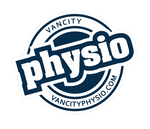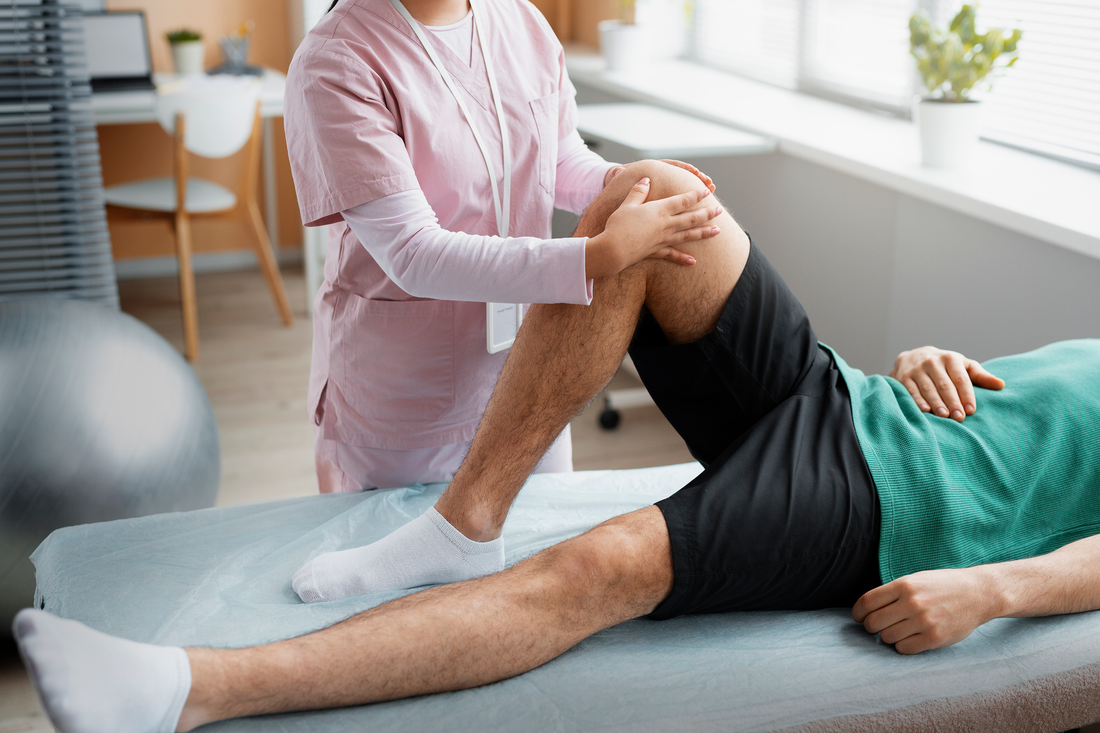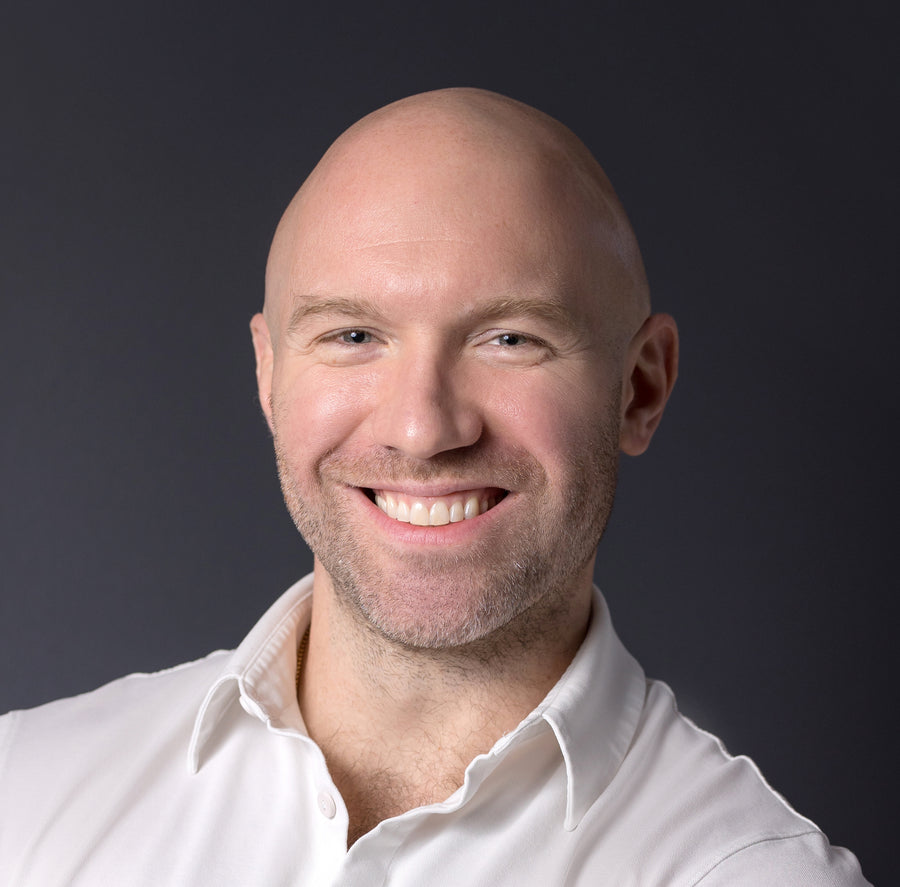Knee injuries can be debilitating, especially when they involve a crucial stabilizer like the Anterior Cruciate Ligament (ACL). Whether you're an athlete pushing your limits or simply experienced an unexpected twist, an ACL tear can bring your active life to a halt. At VanCity Physio, we understand the impact these injuries have, and we're here to guide you through every step of your recovery, from initial understanding to a strong, confident return to activity.
What Exactly is the ACL and How Does it Tear?
The ACL is one of four major ligaments in your knee, connecting your thigh bone (femur) to your shin bone (tibia). It plays a vital role in providing stability to your knee joint, particularly preventing your tibia from sliding too far forward and controlling rotational movements.
ACL tears are common, especially in sports that involve sudden stops, changes in direction, jumping, or awkward landings. These can be non-contact injuries, such as pivoting sharply, or direct impact injuries. Previous knee injuries can also increase your risk.
Recognizing an ACL Tear: Symptoms You Should Know
Knowing the signs of an ACL injury can help you seek timely and appropriate care. If you've experienced a knee injury, look out for these common symptoms:
-
A "Pop" Sound: Many individuals report hearing or feeling a distinct "pop" at the moment of injury.
-
Severe Knee Swelling: Significant swelling often develops rapidly after an ACL tear.
-
Sharp or Aching Pain: You'll likely experience immediate and often intense pain in the knee.
-
Feeling of Instability or "Giving Way": The knee may feel unstable, or as though it's going to buckle or give out from under you.
-
Limited Range of Motion: It might be difficult or painful to bend or straighten your knee fully. If your knee feels completely stuck or unable to move, you might also be experiencing a locked knee – learn more about its causes and what to do.
-
Tenderness Around the Knee: The area around the joint may be tender to the touch.
-
Difficulty with Weight-Bearing: Putting weight on the injured leg can be challenging.
-
Muscle Weakness: Weakness in the surrounding muscles can also be present.
-
Bruising: In some cases, bruising around the knee may appear.
While these are common ACL signs, other knee injuries can present with similar symptoms. For instance, if you're wondering how to tell if you've torn your meniscus, we've got a Q&A specifically addressing meniscus tears.
Your Recovery Journey: Non-Surgical vs. Surgical Pathways
Once an ACL injury is suspected, a proper diagnosis through clinical assessment and sometimes imaging is crucial. Initial management often involves the R.I.C.E. protocol: Rest, Ice, Compression, and Elevation, to help manage pain and swelling.
Deciding on the best course of treatment—whether non-surgical rehabilitation or ACL reconstruction surgery—is a big step. Interestingly, recent evidence suggests that for many, dedicating at least 5 weeks of high-quality rehabilitation before making a decision about surgery can be incredibly beneficial. This pre-operative rehab helps settle the knee, improve function, and can even help you determine if you're comfortable with your knee's capacity without surgery. Even if surgery is ultimately chosen, this pre-op work is never wasted; it sets you up for better post-surgical outcomes and future knee health.
The only exceptions where immediate surgical opinion might be needed are for those with high-grade concomitant injuries, such as full thickness cartilage lesions or complex meniscus tears.
The Power of Physiotherapy in ACL Rehabilitation
Regardless of whether you choose a non-surgical or surgical path, physiotherapy is the cornerstone of a successful ACL recovery. It’s a long-term commitment, often spanning 6 to 12 months for surgical cases, but it's essential for regaining strength, stability, and confidence.
Our tailored physiotherapy programs at VanCity Physio are designed to guide you through distinct phases of recovery:

Phase 1: Acute & Immediate Post-Injury/Surgery (0-6 Weeks)
The initial focus is on calming the knee. We work to reduce pain and swelling using techniques like manual therapy, ice therapy, and other modalities such as Ultrasound, Shockwave Therapy, Electrical stimulation, and cold compression. Gentle range of motion exercises and isometric exercises are introduced to prevent stiffness and maintain muscle activation.
Phase 2: Early & Subacute Rehabilitation (2-12 Weeks)
As pain and swelling subside, the goal shifts to restoring full range of motion and beginning the strengthening process. We'll guide you through progressive strengthening exercises for your quadriceps, hamstrings, and calf muscles. Weight-bearing exercises and functional training to mimic daily activities are also incorporated. Balance and proprioception (your body's awareness in space) exercises become increasingly important to improve joint stability.
Phase 3: Advanced Rehabilitation (3-6 Months)
This phase involves increasing the intensity of your exercises. We'll focus on dynamic strengthening, enhanced proprioceptive training, and sport-specific drills if you're an athlete. This is also a crucial time to address the psychological aspects of recovery, building confidence in your knee's capabilities.
Phase 4: Return to Activity & Sport (6-12 Months and Beyond)
This final phase prepares you for a safe and confident return to your desired activities, whether it's hiking, running, or competitive sports. This includes high-level agility training, plyometric exercises, and ongoing strength exercises. Functional testing will assess your stability and strength, ensuring you're truly ready. Remember, consistency, listening to your body, and open communication with your physiotherapist are key to a successful comeback.
Ready to begin your recovery journey? Book an appointment with one of VanCity Physio’s Knee Specialists.
Cutting-Edge Techniques for Optimal Recovery
At VanCity Physio, we utilize various advanced physiotherapy techniques to optimize your recovery:
-
Blood Flow Restriction Therapy (BFR): A technique used to enhance muscle strength and hypertrophy with lower loads.
-
Cryotherapy and Contrast Therapy: Effective for managing inflammation and pain.
-
Laser and Ultrasound Therapy: Can promote tissue healing and reduce discomfort.
Preventing Re-Injury: Staying Strong for the Long
Haul
A successful recovery isn't just about healing; it's about building resilience to prevent future injuries. Our physiotherapists will educate you on prevention strategies, including:
-
Strength Training: Focusing on strengthening both quadriceps and hamstrings to create balanced knee support.
-
Plyometric Training: Incorporating jumping and landing drills to improve dynamic stability.
-
Proper Technique: Learning correct body mechanics for movements like landing, cutting, and pivoting.
-
Flexibility Training: Maintaining good flexibility to support joint health.
-
Neuromuscular Training: Enhancing balance, agility, and overall body control.
Beyond ACL: Other Knee Conditions We Treat
While this guide focuses on ACL injuries, the knee is a complex joint susceptible to various issues. At VanCity Physio, we're equipped to help you with a wide range of knee concerns, including:
Beyond ligament tears, the knee is susceptible to various other conditions that can cause significant discomfort. For instance, if you experience pain at the front of your knee, particularly around the kneecap, you might be dealing with Patellofemoral Pain Syndrome (PFPS). To learn more about this common issue, its causes, and effective physiotherapy treatments, explore our Comprehensive Guide to Patellofemoral Pain Syndrome.
Your ACL Comeback Starts Here!
An ACL injury can be a challenging experience, but with the right guidance and dedication, you can bounce back stronger than ever. Our team of experienced physiotherapists at VanCity Physio is passionate about helping you achieve your rehabilitation goals. We'll work collaboratively with other medical professionals to ensure a holistic recovery approach.
Ready to reclaim your strength and mobility? Contact VanCity Physio today to book your personalized assessment and start your ACL comeback journey!


